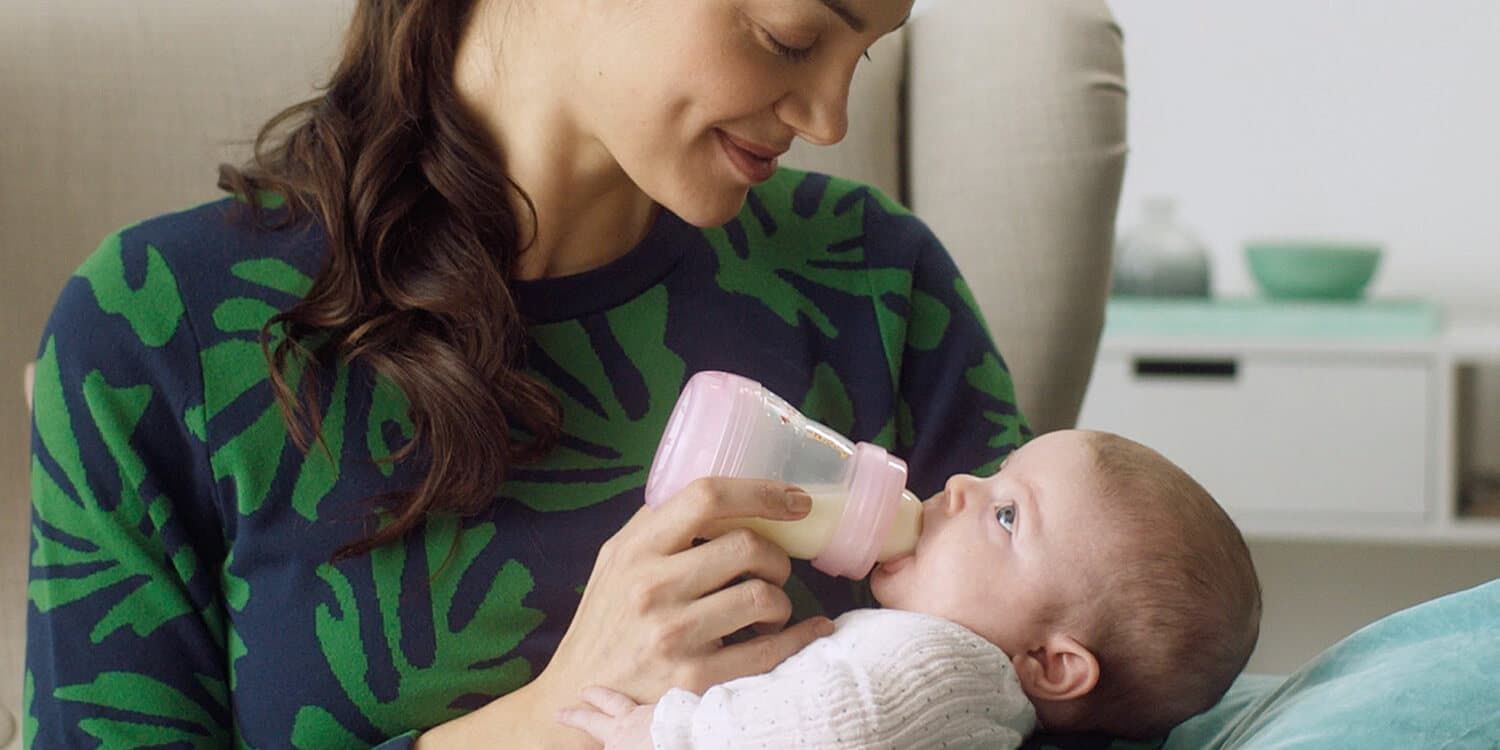Breast milk is considered a miracle product. But why is breastfeeding considered to be best for the baby? What advantages does breast milk have? We asked MAM-expert Professor Reinhold Kerbl for some interesting facts about breast milk and breastfeeding.
Why is breast milk best for the baby?
"There are several reasons – and all experts agree on this – why breast milk is best for babies. If all goes well, once established, breast milk is always available and at the right temperature. Breast milk contains everything that babies need in the early months – vitamins, minerals, healthy fat, carbohydrates, protein. And it strengthens the immune system," says Professor Reinhold Kerbl.
What is particularly impressive about breast milk?
Professor Reinhold Kerbl: "What is fascinating is that it (breastmilk) is not always the same. The quantity and constituents are automatically adapted to the baby's needs. That is, the composition is variable, and the ingredients change during the course of breastfeeding – fully individually and according to the specific requirements of the baby."
What health benefits does breast milk have for the child?
"On the one hand, breast milk is easily digestible, which means baby will be less prone to gastrointestinal disorders. On the other hand, sucking on the breast also promotes development of the jaw and facial muscles – this is useful later when learning to eat and speak. Breastfed babies also tend to be less prone to infections, allergies, diabetes, and obesity," says the MAM expert.
What are benefits of breastfeeding for the mother?
Professor Reinhold Kerbl: "Yes, nursing mothers tend to stay healthy: puerperal infections are less frequent and the German Cancer Research Center has even identified a lower risk of breast cancer. Breastfeeding can also help the involution of the uterus – meaning the uterus will return to it's pre-pregnancy state sooner."

How long should babies be breastfed for?
"World organizations such as UNICEF and the WHO recommend exclusively breastfeeding for the first 6 months. However, if the baby is to have plenty of breast milk available, the mother must also be healthy. Breastfeeding therefore is and always will be a personal matter," says the specialist in pediatric and adolescent medicine.
How often and for how long should a mother breastfeed her baby?
Professor Kerbl takes into account all breastfeeding mothers and babies: "When it comes to duration, frequency, and quantity, it is also entirely down to the needs of the mother and the baby: initially the amount of milk increases rapidly – from a drop just after birth to about 17 ounces a day after a few days. Frequently putting baby to the breast and alternating sides promotes milk production. A 6 month-old baby consumes about 27 ounces daily. You can usually rely on nature; the quantity generally corresponds to the demand – no matter how big or small the breast is. How often baby gets hungry depends on the individual, but there is a guideline initially: in the first few weeks of life, breastfeed roughly every 2 to 3 hours until your personal rhythm is established." If you have any questions or concerns regarding milk supply or whether or not your baby is gaining enough weight, then speak to your health visitor or GP.
Photos: Shutterstock





























